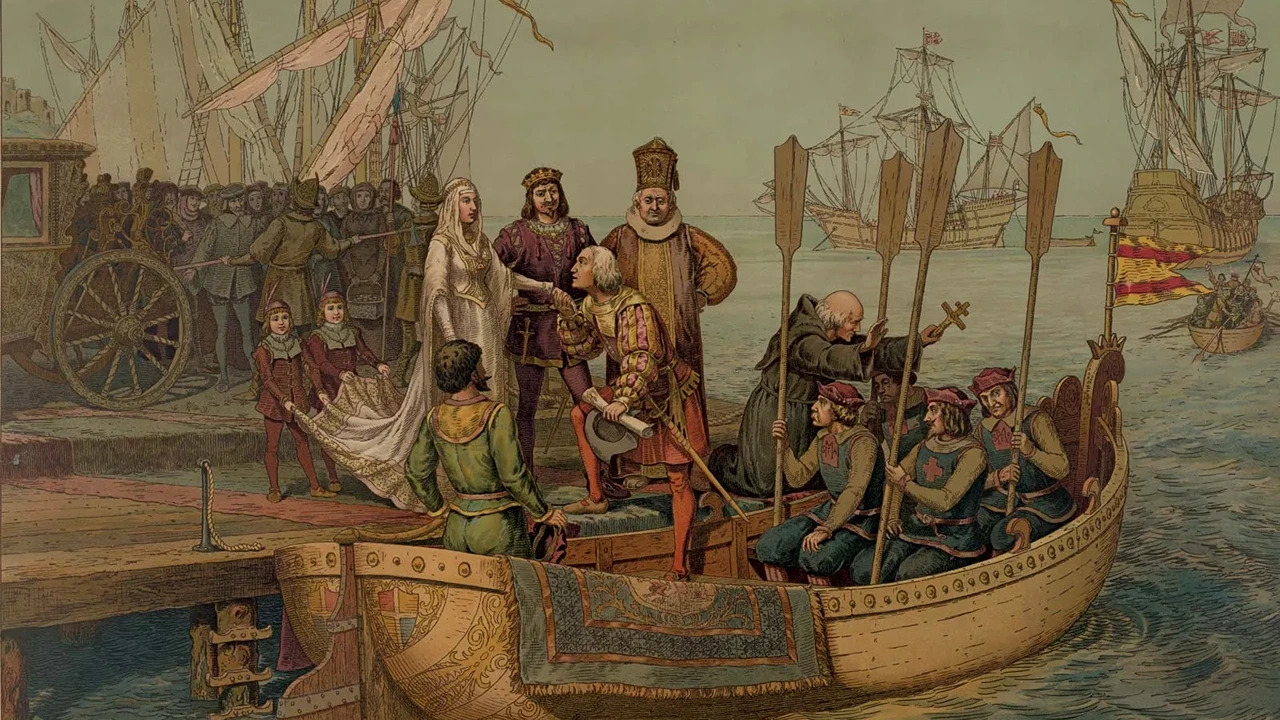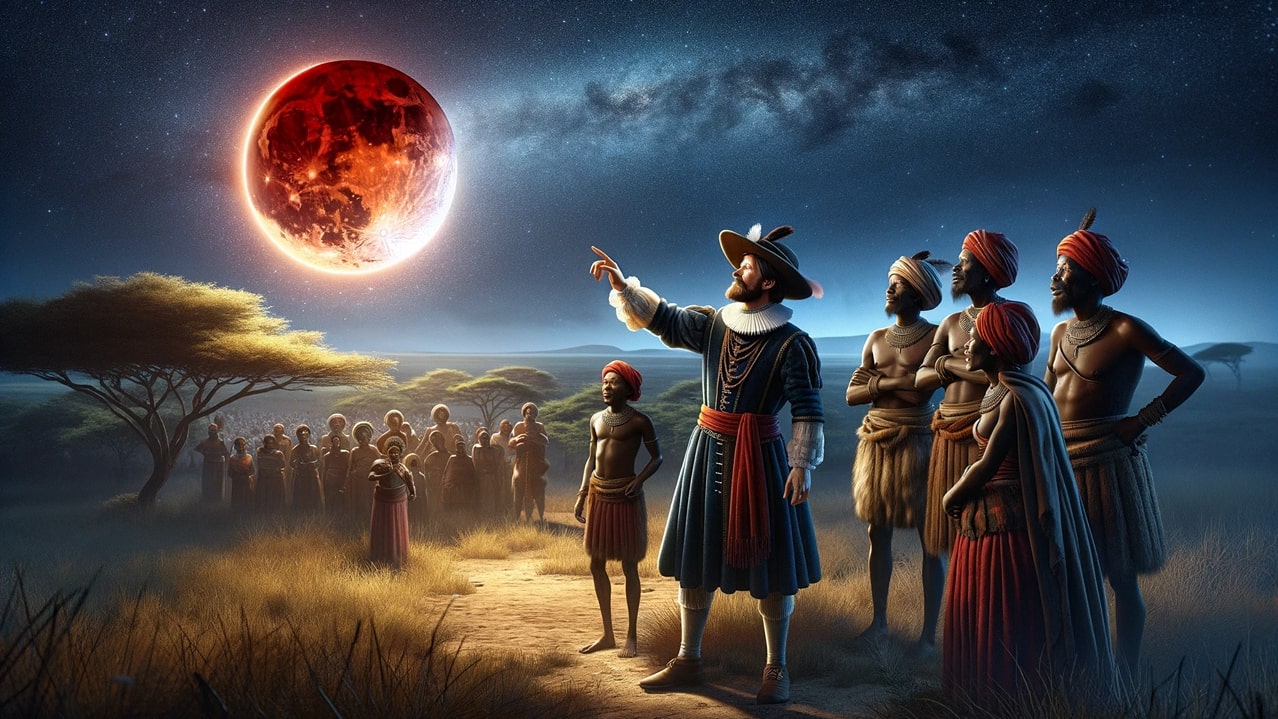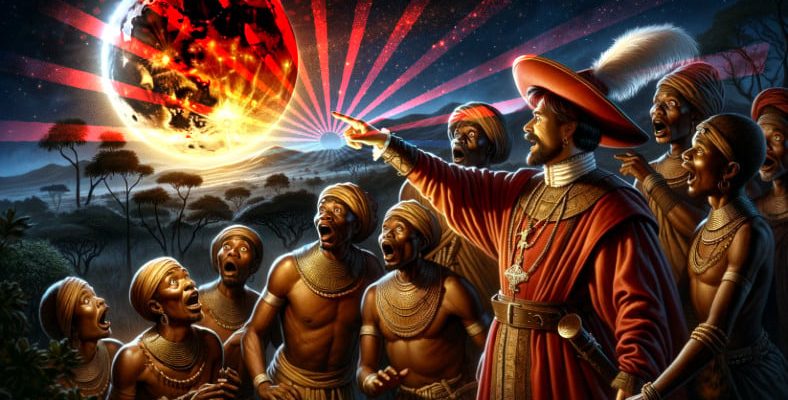Confucius said, “Nothing is so frightening as ignorance in action.” We would like to start the subject with the following words: Because what you are about to read will be an example of what ignorance can do.
We know him as a Genoese explorer who discovered America and was born in 1451. Christopher ColumbusWith his interest in the seas in his youth, he set out to investigate the undiscovered lands called mysterious “terra incognita” on the maps of that period.
Columbus’s aim in his adventurous journeys was not only to illuminate the dark spots on the maps, but also to spend time there and tell people about what was happening. That’s how he ended up in Jamaica.
Columbus’s first great adventure began on August 3, 1492, from the Port of Palos de la Frontera in Spain.
His journey, which lasted days and months, ended when he reached San Salvador Island on October 2, 1492. However, at that moment, he had not yet realized the value of his discovery. Even though he reached the American continent, he still found himself in the East Indies He thinks that the local people who set foot on the island are called “Indians”. (Eng. Indian)”. That’s why today the American Indians are still called Indians. (Eng. Indian) It is referred to as.
Although Columbus reached the lands of the new continent He could not find a route to the East Indies. However, without losing hope, he tried three more times in 1493, 1498 and 1502; But he was not successful in these attempts either. Columbus, who set out on his last voyage from Cadiz Port in Spain on May 9, 1502, began a difficult journey with 147 sailors and his flagship Capitana.
Exposed to storms, attacks and epidemics, Columbus was forced to withdraw his ships to Jamaica.
This is where the story begins. With his ships that ran aground on 25 June 1503 columbus, in jamaica He was stranded for about a year. During this period, Columbus and his team spent a whole year full of adventures, difficulties and funny memories while exploring the beauties of the island.
In the exotic atmosphere of Jamaica, Aravak Indians, the indigenous people of the region, He welcomed Columbus and his crew with warm hospitality. At first, the local people provided them with food and shelter, but over time, as days turned into weeks and weeks into months, tensions arose in the relations between Columbus and the native people.
When Columbus’s crew began to mistreat the native people, the Arawaks stopped their aid to them.

In these troubled moments “regiomontanusJohannes Müller von Königsberg, nicknamed “”, appeared. Regiomontanus, a German mathematician and astronomer who lived in the 15th century, published an almanac describing future astronomical events and what would happen in the sky between 1475 and 1506.
Columbus also had this almanac, which was the guidebook for sailors, at his disposal. As he examined the almanac, he also accessed information that would save his team. For example, on Thursday evening, March 4, 1504, all There would be a lunar eclipse visible on Earth.
Three days before the lunar eclipse, Columbus held a meeting with the Aravak chief.
While talking to the chef, they were told that they were not provided with food. Christian God He said it made him angry. He even said that the full moon, which rises three days later, will almost completely disappear and turn red, a clear sign of God’s wrath.
Indeed, three days later The full moon faded on the night of February 29 and it turned into the color of flame. The local people were terrified by this extraordinary sight and began to run screaming towards Columbus’s ship. It is said that they practically begged Columbus to communicate with God. They said that if God restored the Moon, they would cooperate with them.
Columbus skillfully calculated the duration of the eclipse using Regiomontanus’ almanac.

The visual was created with artificial intelligence.
In order not to miss his calculations, he appeared a few minutes before the eclipse ended. Ring, He reassured the local people, who were afraid of God’s wrath, by giving them the good news that God had forgiven them and that the Moon had returned to its former state. Indeed, as he said, the Moon gradually returned to normal, and the Arawaks did not leave after Columbus and his crew until they left Jamaica, as they had promised.
Columbus used this lunar eclipse, which occurred in Jamaica in 1504, for his own benefit. in jamaica Thanks to this genius plan he made during his time stranded, he lived happily ever after.
When the eclipse ends Natives who thought they were forgiven by God While continuing their lives happily, Columbus, who was aware of the functioning of the universe, made the following note in his notebook: “Ignorance always brings slavery.”
Our other history-related content:
RELATED NEWS
Wild Methods Applied in Aztec Rites: The Parts of Sacrificed People Were Added to the Dough and Eaten!
RELATED NEWS
What was the reason why cats were depicted so spooky in medieval paintings? No, it’s not incompetence!
RELATED NEWS
“How Could This Be?” Incident That Made You Say: A Woman Who Gave Birth 10 Days After Being Buried in the Middle Ages
RELATED NEWS
Completely Normal Things That Caused a Woman to Be Tried for ‘Witchcraft’ in Medieval Europe
RELATED NEWS
You’ll Be Thankful for Today’s Medicine When You Hear About These Birth Control Methods from the Middle Ages!
RELATED NEWS
